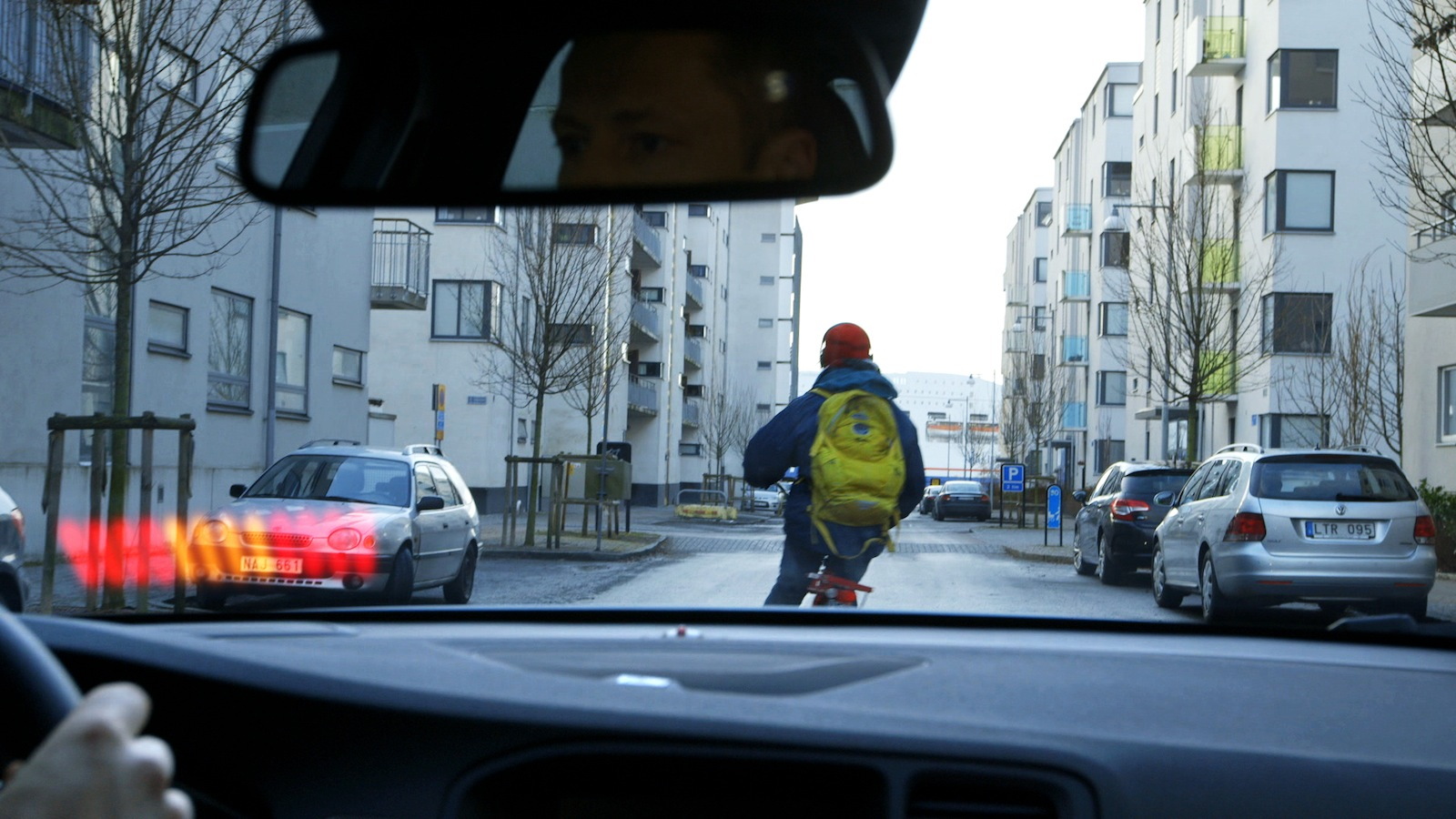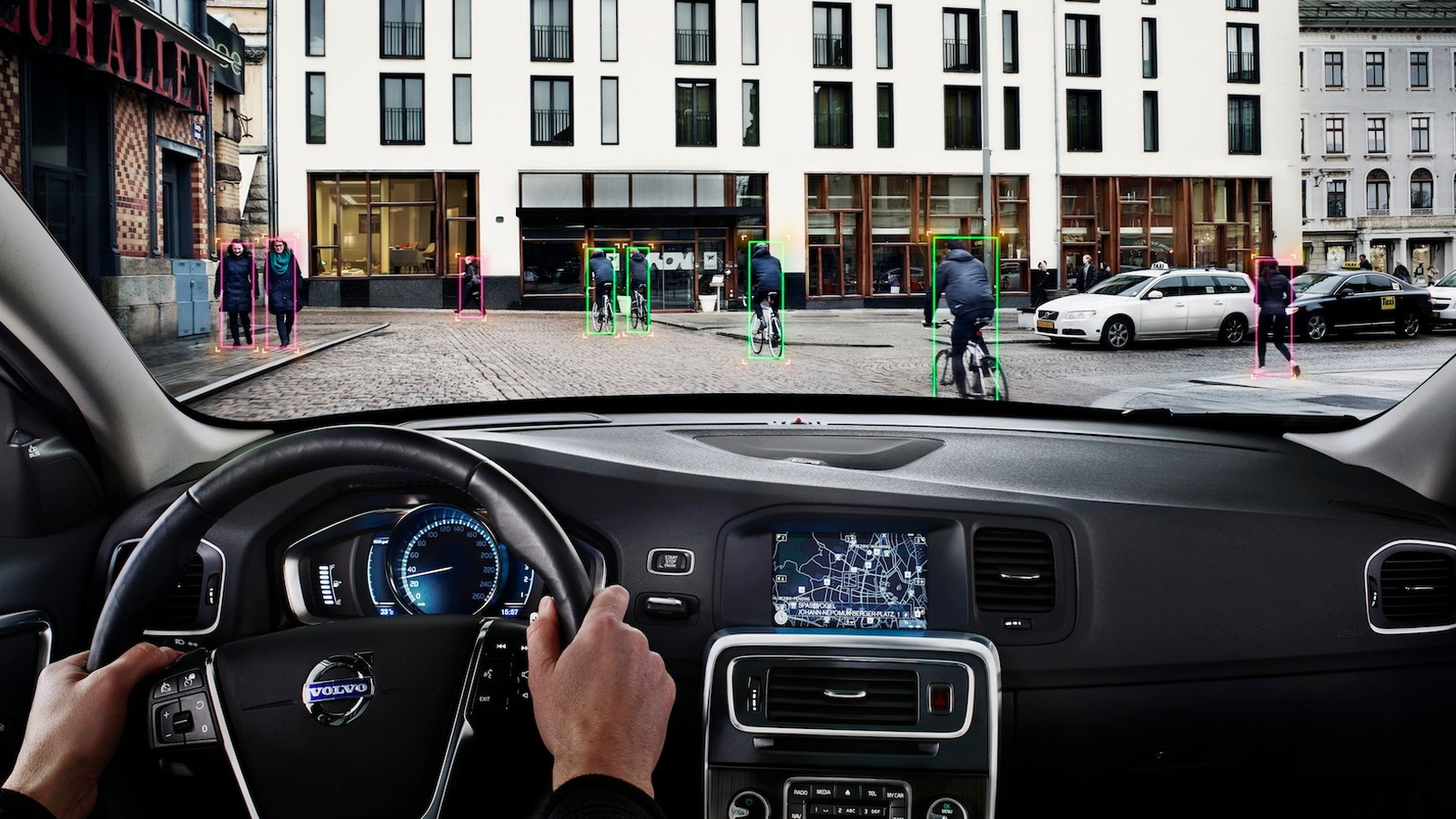An offshoot of Volvo’s Pedestrian Detection system, first launched in 2010, the new Pedestrian and Cyclist Detection system includes full auto brake capabilities. Advancements in software, including faster vision processing, now allow the system to cover what Volvo is describing as “certain” cyclist situations.
Since Volvo’s detection system is forward-looking, it can react to cyclists moving in the same direction as the car, assuming the differential in speed is not substantial. When it senses that a collision is imminent, the system delivers a warning to the driver and automatically brakes to avoid or minimize an accident.
In Europe, roughly 50-percent of cyclist fatalities are caused by impacts with motor vehicles. Volvo’s system, which relies on data from both a radar unit and a camera, allows for accurate object recognition at the farthest possible distances, potentially enabling a significant reduction in collisions between automobile and bicyclists.
Ultimately, Volvo’s goal is to make cars crash-proof, which is a mission shared by virtually every automaker working on autonomous technology. Though it may be farther off than Volvo’s target date of 2020, every advancement in safety gets the automaker one step closer to its target.
Look for Volvo to roll out the Pedestrian and Cyclist Detection system on its V40, S60, V60, XC60, V70, XC70 and S80 models, beginning in the second quarter of 2013.


